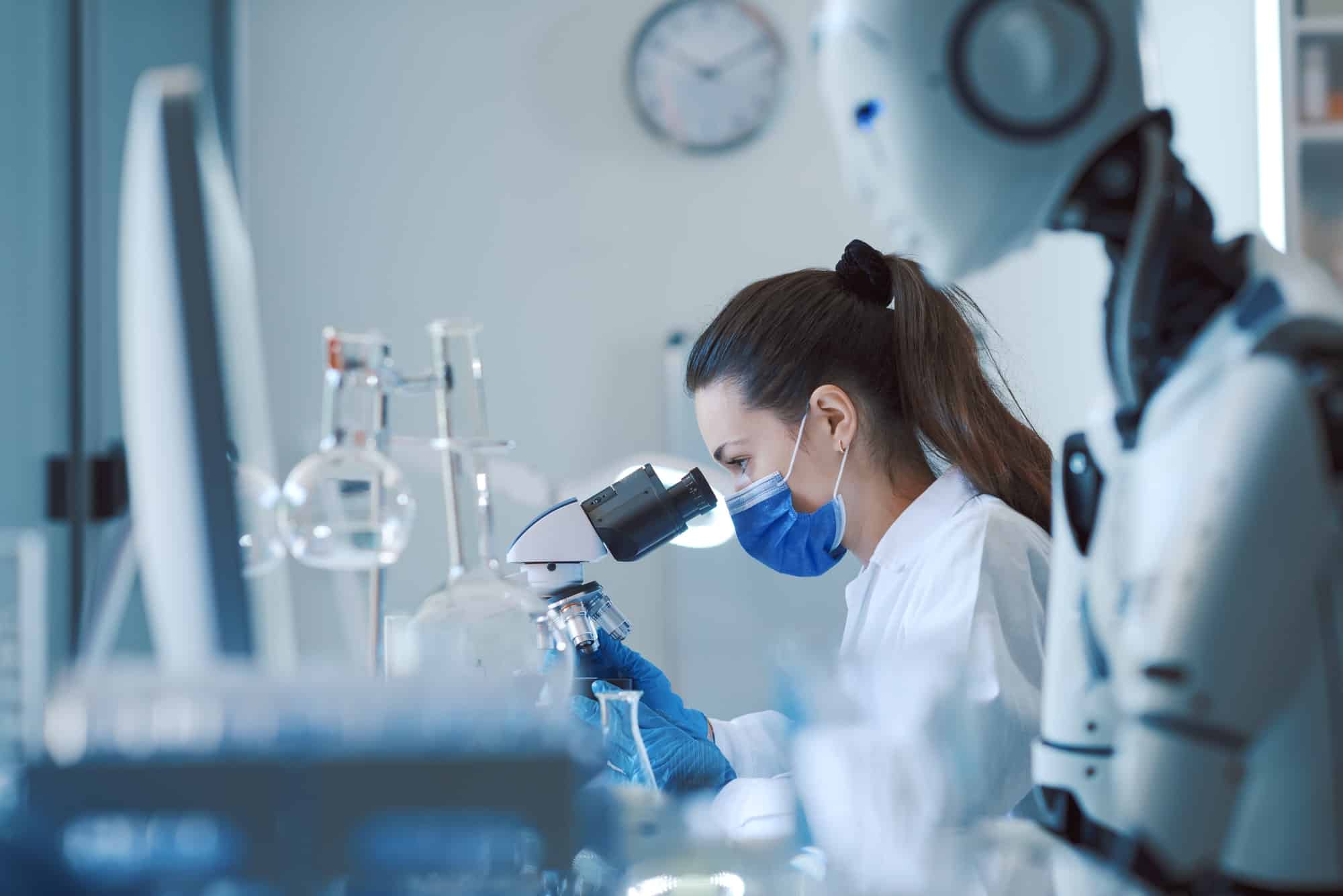What Role Does AI Play in Enhancing the Efficiency of Smart Greenhouses?

The role of Artificial Intelligence (AI) has permeated every aspect of our lives, including the way we farm. The concept of smart greenhouses—greenhouse systems that leverage the Internet of Things (IoT) and AI to boost their efficiency—is progressively being adopted in modern farming. These advanced systems offer a promising solution to enhance agricultural productivity while reducing environmental impact.
This article will delve into how AI can be used to enhance the efficiency of smart greenhouses in areas such as energy management, water irrigation, and environmental control. We will also discuss how AI-based systems can assist farmers in making data-driven decisions.
Avez-vous vu cela : Discover the exciting secrets of the playstation mystery box
The Intersection of AI and Greenhouse Farming
Before we discuss how AI is enhancing the efficiency of smart greenhouses, it’s essential to comprehend the concept of smart farming within a greenhouse context. Smart greenhouses utilize advanced technology for automation, reducing the need for manual intervention in farming.
AI, a significant component of this technology, has the potential to revolutionize greenhouse farming. It can process large volumes of data, learning from this data to make predictions and decisions that would otherwise require human intelligence. In the context of greenhouse farming, AI is used to analyze data related to crop growth, predict future trends, and offer solutions to improve crop yield and quality.
Avez-vous vu cela : How Can AI-Powered Optimization Tools Reduce Energy Consumption in Data Centers?
Boosting Energy Efficiency with AI
One of the significant costs associated with running a greenhouse is energy. AI can play a significant role in managing this resource more effectively. Smart greenhouses equipped with AI technology can monitor and control the energy use within the greenhouse, ensuring optimal usage.
For instance, AI can analyze data on sunlight, temperature, and crop needs to optimize the use of artificial lighting and heating systems. It can also control the ventilation and air conditioning systems based on the environmental conditions and crop needs, thereby reducing wastage of energy.
Enhancing Irrigation Efficiency through AI
Water is a critical resource for any form of agriculture, and its efficient use is vital for sustainability. AI can play a pivotal role in managing water resources in smart greenhouses. AI-based irrigation systems can analyze various data such as soil moisture levels, weather forecasts, and crop water needs to deliver the exact amount of water that crops need.
This precision irrigation, enabled by AI, not only ensures that crops get the necessary water but also reduces water wastage. By predicting weather conditions and adjusting watering schedules accordingly, AI can prevent overwatering or underwatering, which can harm the crops.
Environmental Control through AI
A successful crop yield in a greenhouse largely depends on maintaining the right environmental conditions. These include temperature, humidity, light intensity, and CO2 levels. Maintaining these conditions manually can be challenging, but AI can automate this process, enhancing efficiency.
Smart greenhouses equipped with IoT sensors can collect a wide range of data about the environmental conditions within the greenhouse. This data is then processed by an AI system which adjusts the greenhouse conditions accordingly. For instance, if the AI detects a drop in temperature below the crop’s optimal level, it can activate the heating system to balance it.
Data-driven Decision Making for Farmers
AI can assist farmers in making informed, data-driven decisions. With AI, farmers can access real-time data about the condition of their crops, soil, and overall environment. This data can be analyzed to provide valuable insights about crop health, growth patterns, and potential diseases, enabling farmers to make proactive decisions.
Additionally, AI systems can forecast future trends based on historical data, helping farmers plan their planting, harvesting, and selling schedules. The ability to make informed decisions can significantly improve the profitability and sustainability of greenhouse farming.
In essence, AI has a transformative role in enhancing the efficiency of smart greenhouses. By optimizing resource use, automating environmental control, and enabling data-driven decision-making, AI offers a potent solution for the future of sustainable farming.
AI and Vertical Farming in Smart Greenhouses
Vertical farming is a revolutionary approach that allows the stacking of crops in a controlled environment like smart greenhouses. It’s a space-saving technique that can immensely increase agricultural productivity. However, the management of vertical farms, especially when dealing with a variety of crops, can be quite complex. That’s where AI comes in.
Artificial Intelligence, with its capability to process and analyze massive quantities of data in real time, can significantly simplify the management of vertical farms. In these intelligent greenhouses, AI can monitor the health and growth of each plant within the vertical farm, adjusting the environmental conditions as per the individual needs of each crop.
For instance, AI-driven systems can control the light exposure for each tier of the vertical farm based on the specific light requirements of the crops. It can also monitor the soil moisture and nutrient levels for each plant, ensuring optimal conditions for plant growth.
Moreover, AI can optimize energy consumption in vertical farms. For instance, it can adjust the use of artificial lighting and heating systems based on real-time data on sunlight and temperature, reducing unnecessary energy consumption. It can also control the ventilation and air conditioning systems based on the environmental conditions within the greenhouse, ensuring optimal conditions for crop growth while minimizing energy wastage.
AI for Climate Change Adaptation in Smart Greenhouses
The effects of climate change pose significant challenges to agriculture, including greenhouse farming. Unpredictable weather patterns and extreme conditions can severely impact crop yield and quality. However, AI can help greenhouse farmers adapt to these challenges.
Machine learning algorithms, a branch of AI, can analyze historical climate data and predict future weather conditions. This predictive capability allows smart greenhouses to be prepared for adverse conditions, adjusting the internal environment to protect the crops.
For example, if a heatwave is predicted, the AI system can proactively adjust the cooling and irrigation systems in the greenhouse to maintain optimal conditions for the crops. Conversely, in the case of a predicted cold spell, the AI can increase the temperature inside the greenhouse and adjust the watering schedule to prevent freezing.
In the era of climate change, this ability to adapt to changing conditions can be crucial in ensuring the sustainability and profitability of greenhouse farming.
Conclusion: The Future of Smart Greenhouses with AI
In conclusion, Artificial Intelligence is not just enhancing the efficiency of smart greenhouses, but is revolutionizing the entire domain of greenhouse farming. From optimizing energy management and irrigation systems to enabling real-time environmental control and data-driven decision making, AI is making smart greenhouses more efficient, sustainable, and resilient.
The application of AI in vertical farming can significantly increase agricultural productivity, addressing the challenge of limited arable land. At the same time, AI’s ability to adapt to changing climate conditions can ensure the longevity and sustainability of greenhouse farming amid the challenges posed by climate change.
In the face of a growing global population and heightened food demand, smart greenhouses equipped with AI technology can play a crucial role in future-proofing our food systems. As AI continues to evolve and learn, we can only expect the efficiency and productivity of smart greenhouses to reach new heights. The future of sustainable farming indeed looks bright with AI.
